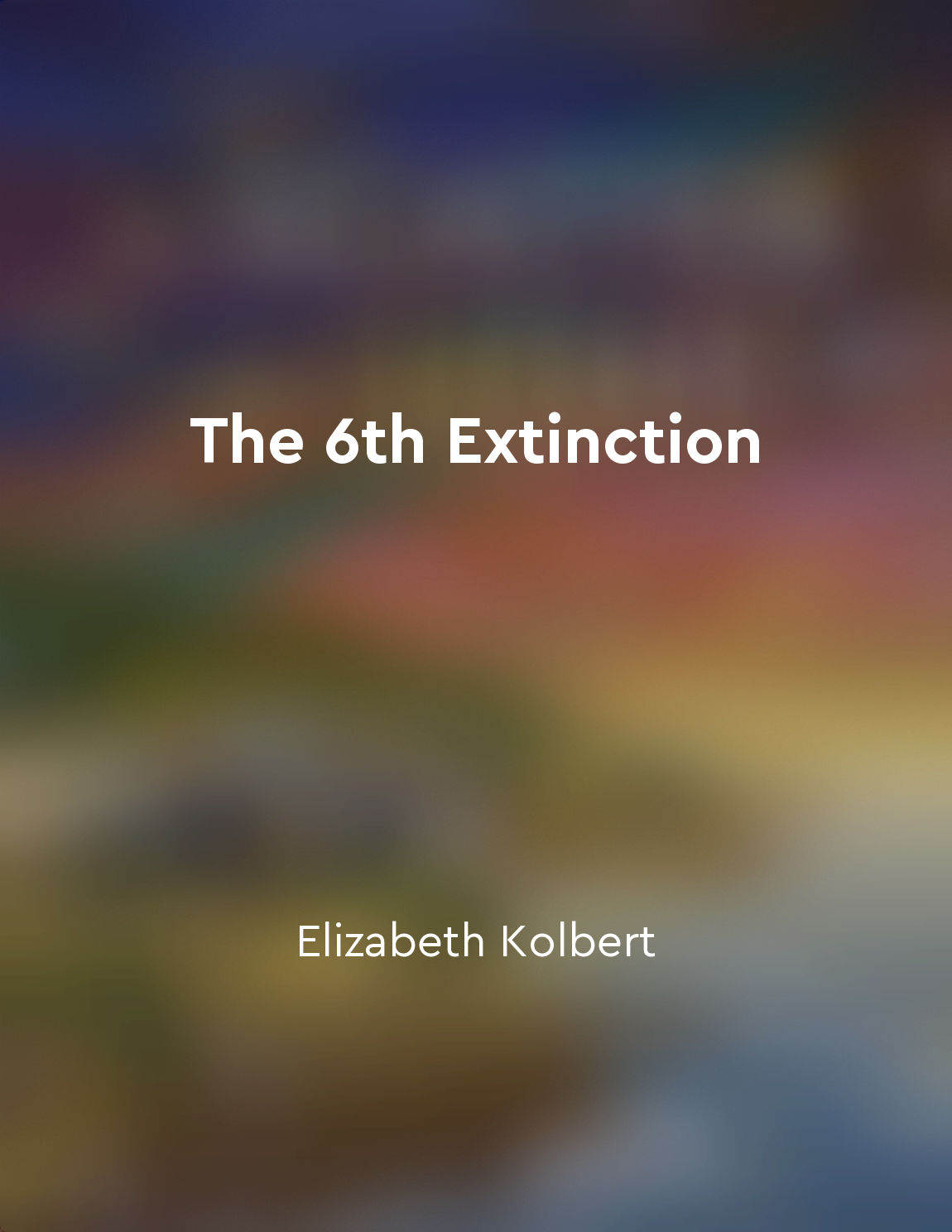Audio available in app
The loss of species can have cascading effects on ecosystems from "summary" of The Sixth Extinction (10th Anniversary Edition) by Elizabeth Kolbert
Losing a single species may seem like a minor event, but in reality, it can trigger a chain reaction that reverberates throughout an entire ecosystem. Each species plays a unique role within the intricate web of life, and when one disappears, the effects can be far-reaching. Elizabeth Kolbert illustrates this concept by examining various case studies where the extinction of a particular species led to unforeseen consequences. For example, the decline of bat populations due to white-nose syndrome has disrupted insect populations, leading to an increase in crop damage and a subsequent decline in plant biodiversity. In another instance, the disappearance of sea otters resulted in a surge in sea urchin populations, leading to the overgrazing of kelp forests and a decline in overall marine diversity. These examples demonstrate how the loss of a single species can set off a domino effect that ultimately alters the entire ecosystem. Furthermore, the interconnectedness of species means that the loss of one can have cascading effects on others. Kolbert highlights how the extinction of pollinators like bees and butterflies can harm plant reproduction, leading to a decline in food sources for other animals. Similarly, the disappearance of top predators can disrupt the balance of entire ecosystems, as seen in the case of wolves in Yellowstone National Park.- The loss of species is not just a matter of reducing biodiversity; it is a threat to the very functioning of ecosystems. As Kolbert illustrates, the intricate relationships between species mean that the extinction of one can have unforeseen consequences that ripple through the entire web of life. This concept serves as a sobering reminder of the delicate balance that sustains life on Earth and the urgent need to protect and preserve biodiversity before it is too late.
Similar Posts
The immune system protects the body from pathogens
The immune system is a complex network of cells, tissues, and organs that work together to defend the body against harmful path...
Advocating for policy changes to protect nature
One key strategy for combating the myriad threats facing our environment is to push for changes in policies that govern how we ...

The sixth extinction is a wakeup call for humanity to change its ways
The sixth extinction event, which is currently underway, serves as a stark reminder of the impact that human activities are hav...

Deforestation is driving many species towards extinction
In the world today, deforestation is a major threat to countless species. As forests are cleared to make way for agriculture, d...

Trees possess intelligence and sensitivity
The trees were not subjects of observation but agents in their own dramas. They were alive and sentient beings, capable of comm...

The loss of species can disrupt ecosystem services vital to human survival
Elizabeth Kolbert explores the consequences of the ongoing mass extinction event on Earth in her book 'The 6th Extinction'. One...
Collaboration is necessary to address the global extinction crisis
The reality of the global extinction crisis demands a united effort from individuals, communities, governments, and organizatio...

